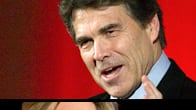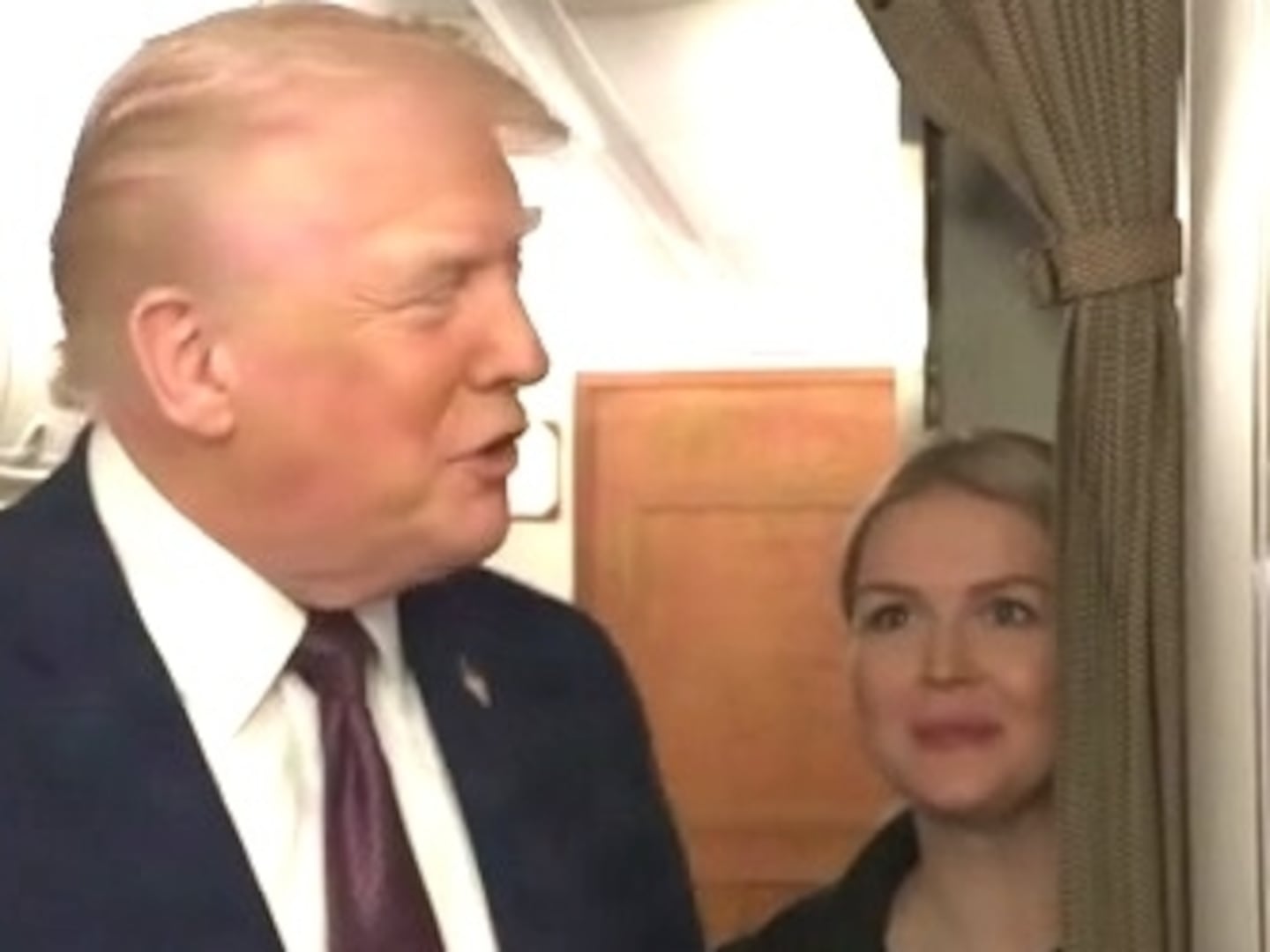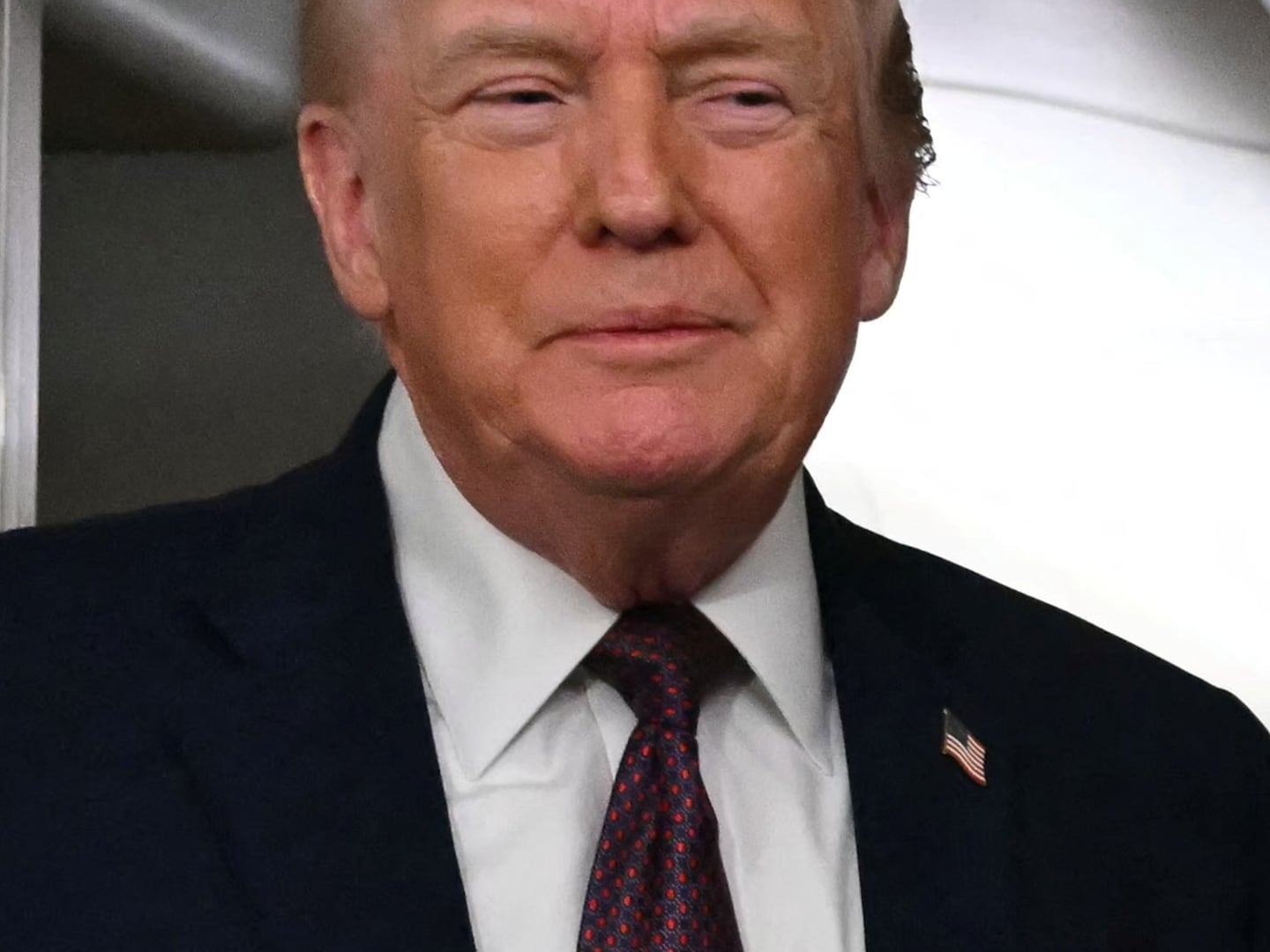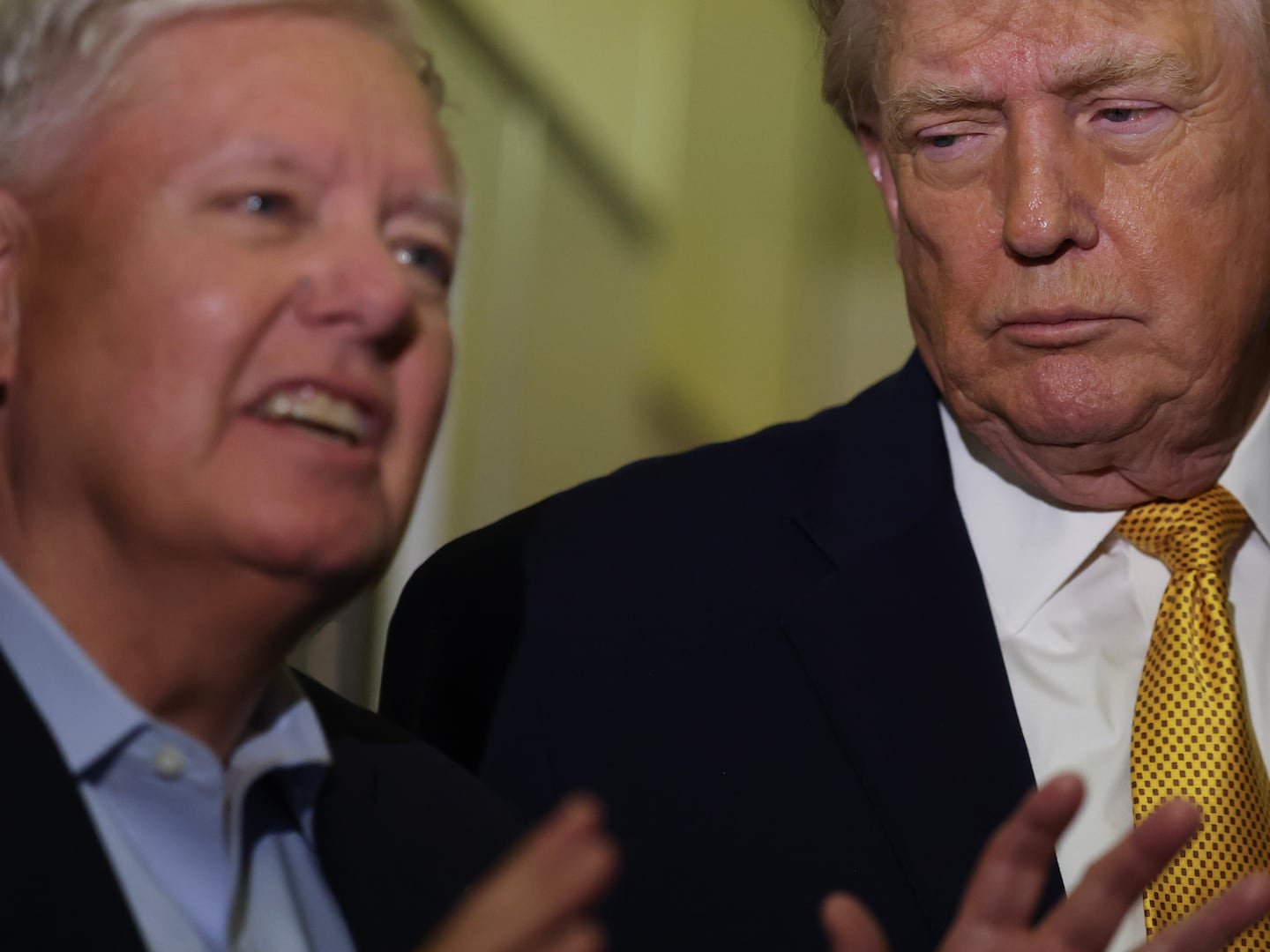
In today’s Texas GOP primary, the biggest issues aren’t on the ballot. The top-line fight between Governor Rick Perry, Senator Kay Bailey Hutchison, and Tea Party candidate Debra Medina is a proxy war between the far-right, the center-right, and the "Wingnuts”—with national implications.
The skirmishes in the Lone Star State are over secession, creationism, and 9/11 conspiracy theories. And at a time when the fringe is blurring with the base, the center is looking a lot like the Alamo right now.
A University of Texas poll found that 51 percent of Texans disagreed with the statement “Humans developed from earlier species.”
Rick Perry is already the longest-serving governor in Texas history, having inherited the post as lieutenant governor after George W. Bush was elected president. He’s been steady but not iconic, having won reelection with 39 percent of the vote in 2006 amid a five-person race that included independent candidate/cowboy singer Kinky Friedman.
Senator Hutchison had previously been the state’s most popular political figure, a fiscal conservative with a centrist approach to social issues such as abortion. But Perry rushed to her right flank, trying to tie her to Washington in an anti-incumbent year. He adopted a novel populist appeal, especially for a man with rumored eyes on the White House in 2012—Texas secession from the United States.
After speaking at an Austin Tea Party rally last spring where the crowd repeatedly shouted, “Secede!”, Perry was asked about renewed talk of Texas secession: “There’s a lot of different scenarios,” he said. “We’ve got a great union. There’s absolutely no reason to dissolve it. But if Washington continues to thumb their nose at the American people, you know, who knows what might come out of that? Texas is a very unique place. … when we came to the Union in 1845, one of the issues was that we would be able to leave if we decided to do that.”

This suddenly made him a folk hero to some on the far right who have been pumping up secession efforts and nullification bills nationwide in the first year of the Obama administration. As it turned out, there are real votes to be had with this appeal—a Rasmussen poll found that one-third of Texas voters believe their state has a legal right to secede. They don’t—such a provision was requested but not passed by the Republic of Texas’ Annexation Convention in 1845, despite widespread rumors to the contrary.
Perry also pivoted to the right when it came to social issues, notably his appointments to the Texas State Board of Education, which has spent much of the past year trying to require that creationism be taught in schools alongside evolution. This also arguably has appeal among Texas voters—a University of Texas poll found that 51 percent of Texans disagreed with the statement “Humans developed from earlier species,” while 30 percent said they believed that “Humans and dinosaurs lived at the same time.” Suddenly, the Flintstones looked like expert witnesses.
Board Chairman Gail Lowe also empowered David Barton—of the evangelical Wallbuilders association, which opposes the separation of church and state—and minister Peter Marshall to revise the state’s social studies curriculum standards, with an eye toward removing figures like Cesar Chavez and Supreme Court Justice Thurgood Marshall from the curriculum.
But all this was not enough to assuage Texas Tea Party activists, who pointed out that Perry’s call for resistance against the federal government’s “oppressive” “interference with the affairs of our state” did not jibe with his actions as governor. Currently, 37 percent of all Texas state funding comes from Washington, totaling $67 billion in federal funds.
Into the slim room that existed to Perry’s right rode Debra Medina—a retired nurse turned conservative populist activist. Medina seemed to both echo and embody Tea Party rhetoric (“there are two rights essential to freedom: private property and gun ownership") and made nullification a core campaign plank (“stepping off into secession may in fact be a bloody war"), earning the endorsement of the co-founder of the local Minutemen militia and the Constitution Party’s 2008 presidential nominee. After participating in the first debate, Medina tripled her numbers, surpassing Hutchison in some polls.
But Medina’s momentum was stopped when none other than Glenn Beck confronted her on air about rumors that she was a 9/11 Truther, who believed that the U.S. government was involved in the destruction of the World Trade Center. Medina replied “I don't have all the evidence there… I think some very good questions have been raised in that regard. There are some very good arguments and I think the American people have not seen all the evidence there.” To his great credit, Beck condemned her on the spot and Medina plummeted in the polls. Nonetheless, the Drudge Report put her face on its valuable homepage real estate the weekend before the election, asking “Can She Pull Off Upset in Texas?”
Meanwhile, the formerly popular centrist Senator Hutchison has slid in the polls despite endorsements from George and Barbara Bush and former Vice President Dick Cheney. With Sarah Palin backing Rick Perry, Hutchison’s conservative credentials have apparently been effectively questioned.
If no candidate surpasses 50 percent of the vote tomorrow night, there will be a runoff. Conservative congressmen like Pete Sessions and Mike Burgess are also facing primaries from Tea Party-backed candidates. The real loser might be the Republican Party: In the second-largest state in the U.S., an economic powerhouse, the extremes are showing every sign of hijacking the political process and calling the shots. As Dallas Morning News columnist William McKenzie told me, “What do they do about Latinos in the general election? Catering to the right-wing crowd means that moderate voters could be looking for an alternative come November.”
John Avlon's new book Wingnuts: How the Lunatic Fringe is Hijacking America is available now by Beast Books both on the Web and in paperback. He is also the author of Independent Nation: How Centrists Can Change American Politics. Previously, he served as chief speechwriter for New York City Mayor Rudy Giuliani and was a columnist and associate editor for The New York Sun.





